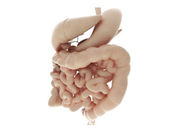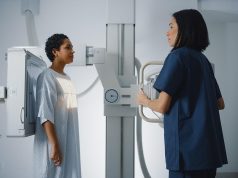But addition of surveillance is not cost-effective based on Dutch incremental cost-effectiveness ratio
TUESDAY, Oct. 3, 2017 (HealthDay News) — Adding surveillance to fecal immunochemical test (FIT) screening reduces colorectal cancer (CRC) mortality and increases colonoscopy demand, according to a study published online Oct. 2 in the Annals of Internal Medicine.
Marjolein J.E. Greuter, Ph.D., from VU University Medical Center in the Netherlands, and colleagues examined the additional benefit of colonoscopy surveillance in a screening setting among asymptomatic individuals aged 55 to 75 years without a prior CRC diagnosis in a microsimulation using the Adenoma and Serrated pathway to Colorectal Cancer model. The authors compared FIT screening with colonoscopy surveillance performed according to Dutch guidelines with no screening or surveillance.
The researchers found that there was a 50.4 percent reduction in CRC mortality for FIT screening without surveillance versus no screening or surveillance. Addition of surveillance to FIT screening reduced mortality by an additional 1.7 to 52.1 percent, with a 62 percent increased lifetime colonoscopy demand at an additional cost of €68,000, for an increase of 0.9 life-year. CRC mortality was reduced by 51.8 percent and colonoscopy demand increased by 42.7 percent by extending the surveillance intervals to five years compared with FIT screening without surveillance. For screening plus surveillance, the incremental cost-effectiveness ratios (ICERs) exceeded the willingness-to-pay threshold of €36,602 per life-year gained in an incremental analysis.
“Adding surveillance to FIT screening is not cost-effective based on the Dutch ICER threshold and substantially increases colonoscopy demand,” the authors write.
Several authors disclosed financial ties to the biopharmaceutical and medical device industries; one author has patents pending on applications related to CRC-related biomarkers, including for screening purposes.
Copyright © 2017 HealthDay. All rights reserved.








